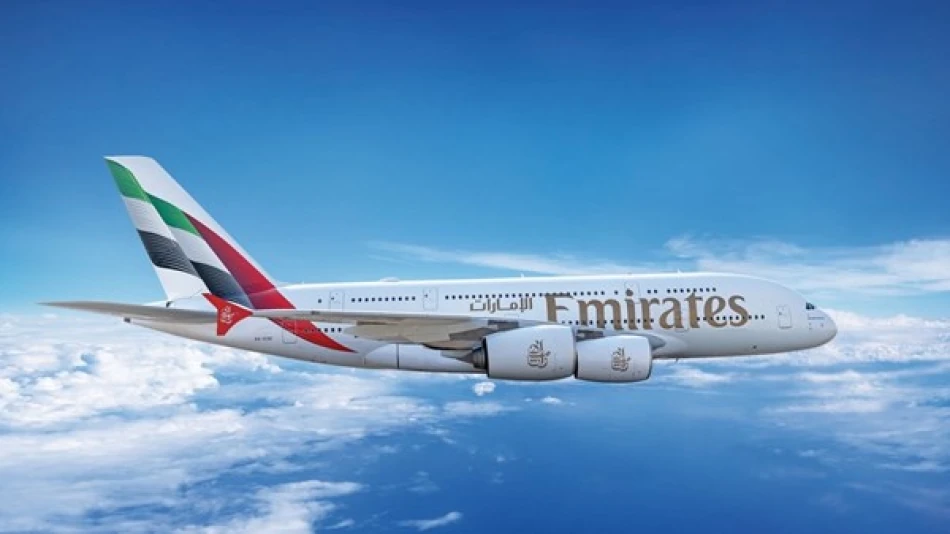
Emirates Unveils Innovative Charging Unit Upgrades for Enhanced In-Flight Experience
Emirates Airlines Tightens Portable Charger Rules, Reflecting Industry-Wide Safety Push
Emirates Airlines has rolled out stricter regulations for portable charging devices aboard its flights, prohibiting in-flight use while limiting passengers to a single power bank under 100 watt-hours. The move underscores growing aviation industry concerns over lithium battery safety and aligns with international efforts to prevent fire hazards at 30,000 feet.
New Restrictions Target Fire Prevention
Under the updated policy, Emirates passengers can carry only one portable charger with a capacity below 100Wh, and crucially, cannot use these devices to charge personal electronics during flight. The airline has also banned connecting power banks to aircraft power sources for recharging, effectively rendering them dormant until landing.
Each accepted charging unit must display clear capacity information, and passengers must store them in seat pockets or under-seat bags rather than overhead compartments. The longstanding prohibition on placing power banks in checked luggage remains unchanged.
Storage Rules Reflect Heat Management Strategy
The requirement to keep chargers in seat areas rather than overhead bins suggests Emirates is prioritizing quick crew access to potentially overheating devices. Overhead compartments, being further from flight attendants and passengers, could delay response to thermal incidents.
Aviation Industry Grapples with Battery Risks
Emirates' stricter stance reflects broader industry anxiety over lithium-ion battery incidents. The Federal Aviation Administration has documented over 400 battery-related air transport incidents since 2006, with portable electronics and power banks representing a significant portion of cases.
Major carriers including American Airlines, Lufthansa, and Singapore Airlines have implemented similar restrictions in recent years, though Emirates appears to be taking a more conservative approach by completely banning in-flight charging from personal power banks.
Regulatory Pressure Mounting Globally
International aviation authorities have been tightening battery transport rules following high-profile incidents. The International Civil Aviation Organization updated its dangerous goods regulations in 2020, giving airlines more discretion to impose stricter limits than minimum international standards.
Passenger Impact and Market Implications
For travelers, the changes mean greater reliance on seat-back power outlets and USB ports, potentially creating charging bottlenecks on older Emirates aircraft not fully equipped with individual passenger power. Business travelers and digital nomads may need to adjust packing strategies for long-haul flights.
The policy could influence portable battery manufacturers to focus more heavily on lower-capacity, airline-compliant models. Companies like Anker and RAVPower have already introduced "travel-friendly" power banks specifically designed to meet aviation regulations.
Competitive Positioning in Safety-Conscious Market
Emirates' proactive approach may appeal to safety-conscious passengers while potentially pressuring competitors to adopt similar measures. The airline's reputation for premium service could help offset passenger inconvenience, positioning strict safety protocols as a luxury travel feature rather than a burden.
As air travel rebounds post-pandemic, airlines are balancing passenger convenience with operational safety. Emirates' latest move suggests the industry is willing to accept some customer friction to minimize fire risks, particularly as aircraft become more densely packed with personal electronic devices.
Most Viewed News

 Layla Al Mansoori
Layla Al Mansoori






